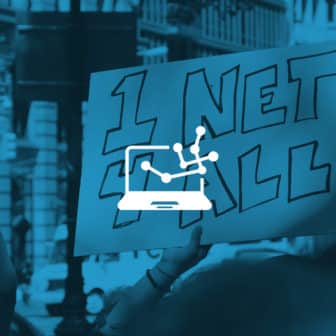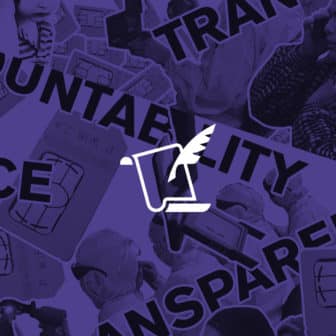Tag: US

Access Joins Call For Surveillance Reform: Without Changes, Spying Law Must Expire
Today, Access joined a coalition of dozens of civil society organizations, trade associations, and companies demanding an end to bulk surveillance activities conducted by the government under provisions in the USA PATRIOT Act. If sufficient reform cannot be passed, then we must call on Congress to allow these provisions to sunset without any reauthorization.

Net Neutrality rules ban fast and slow lanes, but leave zero rating in place
After a lot anticipation and hand wringing, the U.S. Federal Communications Commission finally released its rules about how it will implement its landmark Open Internet Order. The rules — which run some 300 pages — block the creation of fast and slow lanes and appropriately classify broadband internet as a “telecommunications service” under Title II of the Communications Act.

U.S. Senate rushing through cyber-surveillance bill (UPDATED)
Tomorrow, the U.S. Senate Intelligence Committee will secretly consider the Cybersecurity Information Sharing Act (CISA), a bill that would enable companies to sign, seal, and deliver your personal information to the NSA.

You Spoke Out, and They Listened: U.S. FCC Passes Strong Net Neutrality Rules
Today the U.S. Federal Communications Commission listened to the more than 4 million voices who asked for the agency to protect the open net. Voting 3-2 in favor of Net Neutrality, the agency re-classified broadband internet under Title II of the Communications Act—the strongest protections currently available. The move caps off almost a decade of activism by civil society groups in the U.S., but also pressure from groups outside the country including members of the Global Net Neutrality coalition.

The last 100 days to pass surveillance reform
As of this past Saturday, there are less than 100 days remaining until certain provisions of the USA PATRIOT Act will expire unless Congress takes action. Now is the time for Congress to pass surveillance reform, and if they cannot, to allow the USA PATRIOT Act articles to sunset.

Update: Lenovo settles with U.S. regulator and 32 states over privacy and digital security flaws
Lenovo has settled a case involving adware on laptops that used a very insecure method of tracking the web browsing habits of users.

Dear U.S. FCC: Net Neutrality Rules Must Ban Zero Rating. Period.
Next week, the U.S. Federal Communications Commission will vote on rules that, it says, would finally put in place Net Neutrality protections for U.S. internet users. While we are optimistic about the strength of these rules, we’re also worried they will fail to adequately protect against so-called “zero rating” services — schemes devised by internet providers and services like Facebook, Wikimedia, and Spotify in which app usage doesn’t count against data caps —and other forms of price discrimination. A failure to include such language in the FCC’s new rules would not only render them weaker than what came before, but would also create a giant opening for Verizon and other carriers to perpetrate rampant online discrimination.

U.S. eases sanctions on tech exports to Sudan
This week the U.S. government issued a General License to provide users with easier access to the internet and a wide range of software, hardware, and services “incident to personal communications” in Sudan. Access applauds the move, which follows years of advocacy by our organization alongside civil society partners in the U.S. and Sudan.

Access delivers petition to U.S. agencies to investigate use of zombie cookies by mobile carriers
Today, Access delivered a petition signed by 3,000 users to the U.S. Federal Trade Commission (FTC) to investigate the use of so-called “zombie cookies” by mobile carriers to track their customers’ web traffic. Access also delivered a similar petition to the U.S. Federal Communications Commission (FCC) because both agencies arguably have the authority to investigate these harmful practices.

Taming the skies: Obama memo looks at commercial drones, restricts government use
Today, President Barack Obama issued a presidential memorandum addressing the increased development and use of drones within the United States. Among other things, the memorandum, which has the force of law, requires the National Telecommunications and Information Administration (NTIA) to develop a multistakeholder process for the creation of non-binding rules governing commercial drone use. The NTIA will collaborate with businesses and civil society organizations to develop the guidelines, which must be drafted to adequately address threats to privacy and free expression posed by the public use of the technology, particularly the unique challenges of drones as mobile internet service platforms.